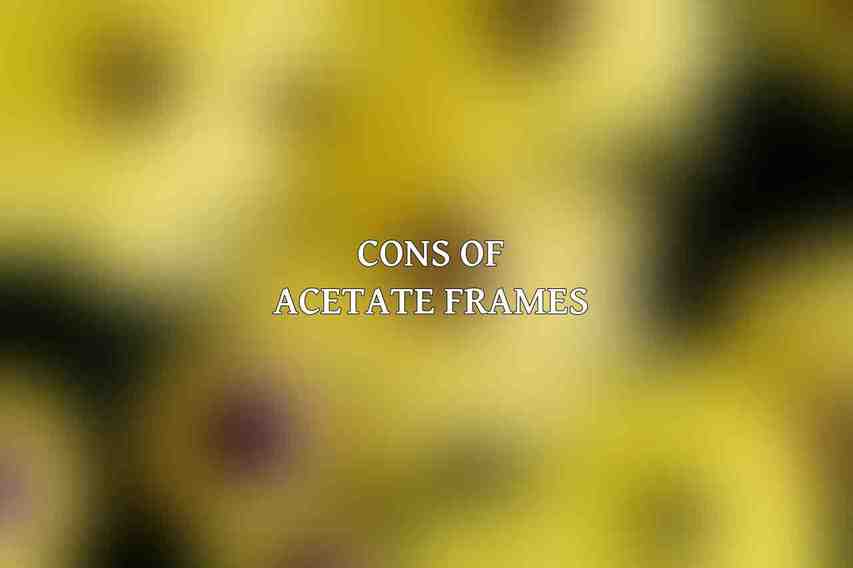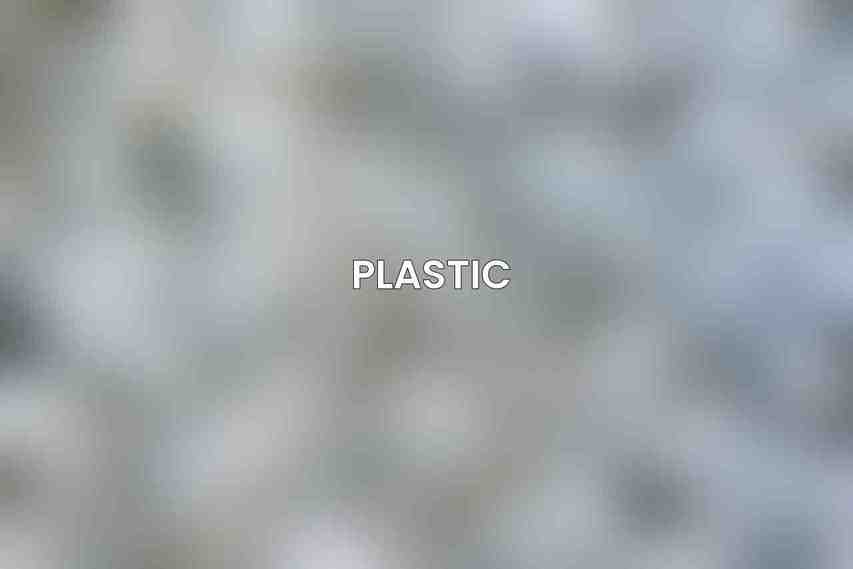Acetate is a popular material choice for prescription glasses frames due to its versatility and aesthetic appeal. Within the realm of acetate, there are different subtypes that offer various benefits to wearers. Cellulose acetate, also known as zyl, is one of the most common and budget-friendly options available in the market today. It is lightweight, making it comfortable for extended wear. On the other hand, zyl acetate is a premium option that is highly durable and known for retaining colors exceptionally well over time.
| Frame Material | Characteristics | Benefits | Drawbacks | ||||||||||||||||||||||||||||||||||||||||||||||||||||||||||||||||||||||||||||||||||||||||||||||||
|---|---|---|---|---|---|---|---|---|---|---|---|---|---|---|---|---|---|---|---|---|---|---|---|---|---|---|---|---|---|---|---|---|---|---|---|---|---|---|---|---|---|---|---|---|---|---|---|---|---|---|---|---|---|---|---|---|---|---|---|---|---|---|---|---|---|---|---|---|---|---|---|---|---|---|---|---|---|---|---|---|---|---|---|---|---|---|---|---|---|---|---|---|---|---|---|---|---|---|---|
| Metal | Strong, durable, lightweight, hypoallergenic | Variety of styles and colors, good for those with allergies | Can be more expensive, may not be as flexible as other materials | ||||||||||||||||||||||||||||||||||||||||||||||||||||||||||||||||||||||||||||||||||||||||||||||||
| Plastic | Lightweight, inexpensive, variety of colors and patterns | Comfortable to wear, customizable | Less durable than metal, may not be as stylish | ||||||||||||||||||||||||||||||||||||||||||||||||||||||||||||||||||||||||||||||||||||||||||||||||
| Titanium | Strong, lightweight, corrosion-resistant | Hypoallergenic, good for those with sensitive skin | More expensive than other materials, may not be as flexible | ||||||||||||||||||||||||||||||||||||||||||||||||||||||||||||||||||||||||||||||||||||||||||||||||
| Acetate | Lightweight, durable, hypoallergenic | Variety of colors and patterns, comfortable to wear | More expensive than plastic, may not be as strong as metal | ||||||||||||||||||||||||||||||||||||||||||||||||||||||||||||||||||||||||||||||||||||||||||||||||
| Wood | Lightweight, durable, unique | Eco-friendly, stylish | More expensive than other materials, may not be as durable | ||||||||||||||||||||||||||||||||||||||||||||||||||||||||||||||||||||||||||||||||||||||||||||||||
| Carbon Fiber | Strong, lightweight, durable | Hypoallergenic, good for those with allergies | More expensive than other materials, may not be as flexible | ||||||||||||||||||||||||||||||||||||||||||||||||||||||||||||||||||||||||||||||||||||||||||||||||
| Nylon | Strong, lightweight, flexible | Hypoallergenic, good for those with allergies | Less durable than other materials, may not be as stylish | ||||||||||||||||||||||||||||||||||||||||||||||||||||||||||||||||||||||||||||||||||||||||||||||||
| Stainless Steel | Strong, durable, hypoallergenic | Good for those with allergies, can be polished to a high shine | More expensive than other materials, may not be as comfortable to wear | ||||||||||||||||||||||||||||||||||||||||||||||||||||||||||||||||||||||||||||||||||||||||||||||||
| Copper | Antibacterial, lightweight, durable | Unique look, good for those with allergies | More expensive than other materials, may not be as flexible | ||||||||||||||||||||||||||||||||||||||||||||||||||||||||||||||||||||||||||||||||||||||||||||||||
| Gold | Durable, hypoallergenic, luxurious | Good for those with allergies, can be polished to a high shine | More expensive than other materials, may not be as lightweight | ||||||||||||||||||||||||||||||||||||||||||||||||||||||||||||||||||||||||||||||||||||||||||||||||
| Visit Eyeglasses.com | |||||||||||||||||||||||||||||||||||||||||||||||||||||||||||||||||||||||||||||||||||||||||||||||||||
Pros of Acetate Frames
- Lightweight and comfortable on the face
- Hypoallergenic nature makes it suitable for those with sensitive skin
- Wide array of colors and patterns to choose from for personalized style
Cons of Acetate Frames

- Prone to scratching and warping if not cared for properly
- Not as durable as metal frames, potentially needing replacement sooner
Metal
Metal frames are lauded for their durability and timeless appearance. Stainless steel, aluminum, and titanium are among the most common types of metals used in crafting prescription glasses frames. Stainless steel frames are strong, resistant to corrosion, and hypoallergenic, making them a popular choice for many wearers. Aluminum frames, on the other hand, are lightweight and perfect for individuals seeking comfortable eyewear. Titanium frames are the lightest and strongest metal option available, ideal for athletes and those leading active lifestyles.
Pros of Metal Frames
- Exceptional durability and longevity
- Adjustable to fit various face shapes comfortably
- Modern and sleek appearance that complements any style
Cons of Metal Frames
- Heavier compared to other materials, which may cause discomfort for some wearers
- Conducts heat and cold, potentially being uncomfortable in extreme weather conditions
Plastic

Plastic frames offer a wide range of options for wearers looking for affordable and durable eyewear solutions. With types like polycarbonate, nylon, and TR-90, there is a plastic frame suitable for various needs. Polycarbonate frames are unbreakable and impact-resistant, making them perfect for sports enthusiasts or children. Nylon frames are flexible, lightweight, and ideal for outdoor activities. TR-90, a type of nylon, is highly elastic and durable, ensuring long-lasting wear.
Pros of Plastic Frames
- Resistant to wear and tear, making them durable options
- Lightweight and comfortable for extended wear
- Ideal for active individuals due to their sturdiness
Cons of Plastic Frames
- May not offer the same level of sophistication as other materials
- Prone to fading or discoloration over time, requiring replacement for aesthetic reasons
Titanium
Titanium frames are renowned for being the strongest and lightest metal utilized in eyewear manufacturing. This material is hypoallergenic, making it suitable for wearers with sensitive skin. Additionally, titanium frames are highly corrosion-resistant, ensuring longevity and durability.
Pros of Titanium Frames
- Unbreakable and exceptionally durable
- Lightweight and comfortable for all-day wear
- Stylish and modern appearance that suits various fashion preferences
Cons of Titanium Frames
- Considered the most expensive frame material on the market
- High price point may deter some customers from choosing titanium frames
Memory Metal

Memory metal, specifically a nickel-titanium alloy, is a unique material used in eyewear production. This alloy is lightweight, flexible, and retains its original shape even after bending or warping. While memory metal frames offer durability and a secure fit, they may come at a higher price point compared to other materials.
Pros of Memory Metal Frames
- Durable and shatter-resistant for long-term use
- Comfortable and secure fit on the face
- Modern and distinctive aesthetic that sets wearers apart
Cons of Memory Metal Frames
- Potentially higher cost compared to other frame materials
- Limited options in terms of color and patterns available for customization
Wood
Wood frames bring a touch of nature and uniqueness to the world of eyewear. Different types of wood, such as ebony, rosewood, and bamboo, offer wearers a sustainable and stylish option for their prescription glasses. Ebony, known for its dense and durable nature, presents wearers with a rich black color for a sophisticated look. Rosewood frames, with their reddish-brown hue, exude luxury and elegance. Bamboo, an eco-friendly and lightweight wood, appeals to individuals looking for sustainable eyewear solutions.
Pros of Wood Frames
- Lightweight and comfortable for daily wear
- Unique, stylish appearance that stands out from traditional materials
- Environmentally conscious choice for those seeking sustainability
Cons of Wood Frames
- Prone to warping or cracking if not properly cared for
- Requires specific maintenance to preserve the integrity and longevity of the frames
when selecting prescription glasses frames, considering the various frame materials available is crucial in finding the perfect pair to suit your needs and style preferences. Each material offers distinct advantages and drawbacks, catering to different lifestyles and aesthetic tastes. Whether you opt for the durability of metal, the versatility of acetate, the uniqueness of wood, or the innovation of memory metal, Eyeglasses.com offers a wide selection of frames to meet your individual requirements and preferences. Remember, the right frame material can enhance both your vision and your fashion statement!
Frequently Asked Questions
What are the different frame materials available for prescription glasses?
There are several common frame materials for prescription glasses including acetate, metal, titanium, and plastic.
What are the advantages of acetate frames?
Acetate frames are durable, flexible, and come in a wide range of colors and patterns for a stylish look.
What are the benefits of metal frames?
Metal frames are lightweight, strong, and hypoallergenic, making them a popular choice for many people.
Why would someone choose titanium frames?
Titanium frames are incredibly lightweight, durable, and corrosion-resistant, making them a great option for those who want long-lasting and comfortable glasses.
What are the features of plastic frames?
Plastic frames are lightweight, affordable, and available in a variety of styles and colors, making them a versatile choice for prescription glasses.

